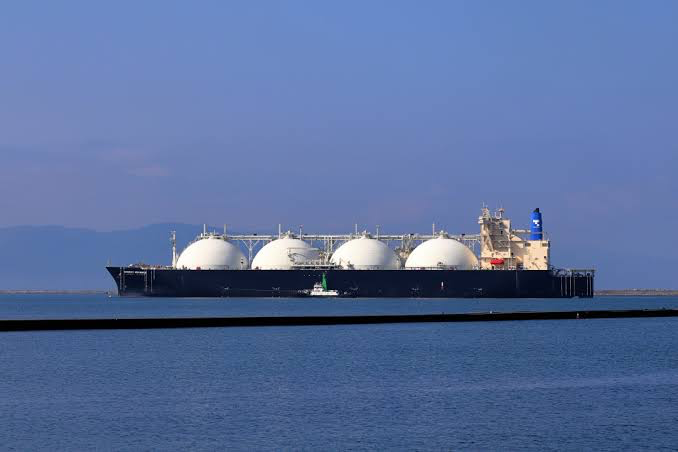KEY POINTS
- Mozambique’s natural gas reserves, exceeding 100 trillion cubic feet, rank among the largest globally, fueling potential for significant economic growth and global energy market impact.
- Key projects like Coral FLNG and Mozambique LNG could transform the country into a leading LNG exporter, despite challenges including security threats and infrastructure needs.
- Investments in local content and robust infrastructure are essential for ensuring sustainable benefits and maximizing Mozambique’s natural gas export potential.
Mozambique, a country located in southeastern Africa, is home to some of the world’s most significant natural gas reserves (ITA, 2024).
With over 100 trillion cubic feet (tcf) of proven reserves, the nation is poised to become a key player in the global energy market (WorldBank).
Natural gas development offers Mozambique a transformative economic opportunity, promising substantial revenue, infrastructure development, and job creation (AfDB, 2024).
However, realizing this potential comes with challenges, including political and security risks, environmental concerns, and market fluctuations (Chatham House, 2010).
Let’s provide an in-depth update on Mozambique’s current state of natural gas exports, offering insights into its progress, challenges, and future prospects.
Overview of Mozambique’s natural gas reserves:
Reserve estimates
Mozambique’s natural gas reserves are a game-changer for the nation’s economy. Estimated at over 100 tcf, these reserves rank among the largest in the world, putting Mozambique on par with some of the globe’s top energy producers.
Most of these reserves are located offshore, in the Rovuma Basin, near the northern coast of the country. These vast reserves offer Mozambique the potential to supply liquefied natural gas (LNG) to energy-hungry markets in Europe, Asia, and beyond.
Rovuma basin
The Rovuma Basin, situated near Mozambique’s northern border with Tanzania, is the crown jewel of the country’s natural gas potential.
Discovered in the early 2010s, this region contains two primary offshore blocks: Area 1, operated by TotalEnergies, and Area 4, managed by a consortium led by Eni and ExxonMobil.
These blocks have been the focal point for investment and exploration, attracting billions of dollars from multinational energy companies.
With ongoing extraction and export projects, the Rovuma Basin positions Mozambique as a future LNG powerhouse on the global stage.
Current state of natural gas exports
LNG projects
Mozambique’s natural gas journey has been driven by ambitious LNG projects. Among these, the Coral South Floating Liquefied Natural Gas (FLNG) project is a significant milestone.
Operated by Eni, this offshore facility is the first FLNG project in Africa and has a production capacity of 3.4 million tons of LNG per annum.
Coral South commenced LNG exports in 2022, marking Mozambique’s debut as an LNG exporter.
Another notable project is the Mozambique LNG project led by TotalEnergies. This onshore initiative, with a production capacity of 12.9 million tons of LNG per annum, represents one of the largest foreign direct investments in Africa.
However, its progress has been hindered by security challenges in Cabo Delgado province, delaying its expected operational date.
Export agreements
Mozambique has secured several export agreements, signaling its integration into the global LNG market.
For instance, a long-term agreement between Mozambique and BP ensures a steady supply of LNG from the Coral South project.
Such deals not only provide Mozambique with consistent revenue streams but also enhance its credibility as a reliable LNG supplier.
Challenges and delays
Despite these advances, Mozambique’s LNG projects face significant hurdles, including the current political unrest. Security concerns in Cabo Delgado, where insurgent attacks have disrupted operations, remain a pressing issue.
Additionally, financing and logistical challenges have slowed the pace of infrastructure development, impacting timelines for key projects. Addressing these obstacles is crucial for Mozambique to fully capitalize on its LNG potential.
Economic impact and opportunities
Economic growth
Natural gas exports are poised to drive substantial economic growth in Mozambique. The government anticipates billions of dollars in annual revenue from LNG exports, which could boost GDP, fund public services, and reduce poverty (Public Expenditure Review by World Bank).
The sector also promises job creation, both directly in gas extraction and indirectly through supporting industries.
Infrastructure development
To support its LNG ambitions, Mozambique requires significant infrastructure investments. Ports, roads, pipelines, and power facilities must be developed to ensure efficient extraction, transportation, and export of natural gas.
Projects like the Afungi LNG Park underscore the importance of infrastructure in enabling Mozambique to meet global energy demands.
Local content and participation
Maximizing the benefits of natural gas requires robust local content policies. Encouraging the participation of Mozambican companies and workers in the LNG value chain ensures that economic gains are distributed equitably. Training programs, capacity-building initiatives, and partnerships with international firms are critical to achieving this goal.
Challenges and risks:
Security concerns
The insurgency in Cabo Delgado poses a serious threat to Mozambique’s natural gas aspirations. Attacks by militant groups have disrupted operations, forced evacuations, and delayed projects. Strengthening security measures and fostering stability in the region are vital for sustaining investor confidence.
Environmental concerns
Natural gas development has raised environmental concerns, including potential harm to marine ecosystems and coastal communities (World Bank).
Mitigating these impacts requires strict adherence to environmental regulations, investment in sustainable technologies, and engagement with affected communities.
Market volatility
Fluctuations in global LNG demand and prices present another risk. While Mozambique’s reserves offer long-term potential, short-term market dynamics, such as competition from other producers and shifts in energy policies, could affect revenue projections.
Mozambique’s journey to becoming a major LNG exporter is a story of immense promise and significant challenges.
With over 100 tcf of natural gas reserves, the country has the resources to transform its economy and secure a prominent position in the global energy market.
However, achieving this vision requires addressing security risks, investing in infrastructure, and ensuring sustainable and inclusive development.
By navigating these complexities, Mozambique can unlock the full potential of its natural gas wealth, delivering prosperity for its people and energy for the world.



